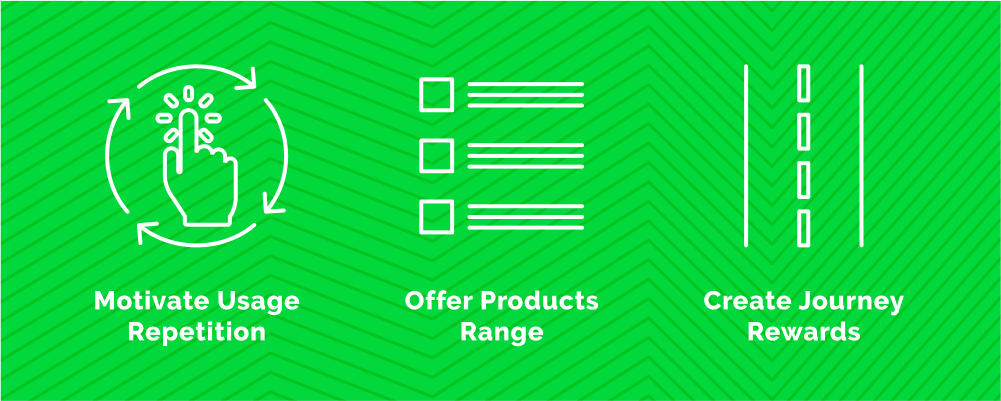CaptiveCoE™, zBlog
How To Scale Up A Fintech Product With A Remote Team
trantorindia | Updated: July 18, 2022

FinTech companies are under mounting scrutiny to thrive as soon as possible. The incentive is substantial, but there is a chance that a fledgling company will take on too much too soon, which will inevitably lead to catastrophe. How can a business idea be worth millions without wasting time, money, or resources?
Innovation is what drives the fintech economy. It’s often relied on to deliver state-of-the-art technological solutions. Living up to those expectations is a tremendous challenge. It is nearly impossible to think of another industry under such intense pressure to provide the most cutting-edge goods and services. Can FinTech companies maintain the pace then? Scaling with a significant dose of ambivalence is needed to stay in the game.
Why Do Fintech Firms Need to Proliferate?

It’s difficult to conceive of another industry that faces as much pressure to provide excellent solutions as the fintech sector. However, given that there are now 48 fintech unicorns worth $187 billion (with a private market valuation of $1 billion or more), the potential payout appears to be worth the effort.
Competing against solid and resource-rich corporations like banks, insurance businesses, and brokerage firms forced ongoing brainstorming and pushed the Agile methodology to its absolute maximum. This type of business FOMO (fear of missing out) among fintech firms fuels a frantic race to innovate ever-more-complex solutions. Extreme flexibility and the ability to quickly integrate new ideas are vital to keeping up. These two variables provide fintech ventures an edge against fin-sharks, but at the same time, they are highly dependent on a finite IT workforce.
Ensure that you’re equipped

Let’s begin with a non-fintech-related concern. Take off your dollar-bill-shaped spectacles and give your product scrutiny before you consider scaling up. A business is said to be scalable if it can adjust to an increased workload without sacrificing efficiency or income. You can start scaling after you’re confident your startup can do this.
Never be afraid to seek help

When the right people are involved, a business can quickly grow. Seek guidance from individuals with a diverse skill set because it could significantly lower the cost of scaling up. Today, you can receive successful results from remote teams anywhere in the world.
We have numerous perspectives on digital products, so we can help you at every stage, even the pre-scaling stage. You can get guidance from Trantor Fintech consultants in identifying areas of your fintech product that could use development and in determining whether scaling up at this time is a good strategy.
How can Outsourcing help Fintech Products?

Finding an experienced remote workforce is a smart way to reduce your initial expenditure if your goal is to scale your financial product sustainably. Most of the problems faced by fintech firms can be solved by assembling a team of professionals with years of expertise. Finding a remote Fintech team may therefore be a relief in this situation. To prevent the progression of your work from being impeded, they will offer competent individuals to address the technological experience gaps.
Outsourced technology partners foresee knowledge transfer within the workforce augmentation rather than just a code. Adding functionality or an aspect of the core product may not always be viable. Especially if you have to start from the ground up and your developers are required to operate with alien technology. The easiest way to expedite development is to find a trustworthy partner who will take over project ownership.
Scaling Up a Fintech Enterprise With a Remote Team- Things To Consider

- Business Acumen: While determining the technology company’s threshold of IT outsourcing maturity, there are several elements to consider. Size and performance duration on the market, the two most evident factors, are essential, but only when they apply to:
- A diligently structured delivery process
- Enabling simple team scaling.
- Collaboration and effective communication are fostered by teamwork
- Delivering expertise from a variety of technology domains
- Sustaining stringent communication protocol
- Dig Deep : An overview of the company’s portfolios may be appropriate for the initial research, but it should be expanded with a deeper exploration of other resources for more advanced tasks. Experience in a particular industry allows one to build tried-and-true procedures that hasten progress and increase productivity. Analyze the testimonials on their website, and those shared on reliable B2B Ratings & Reviews pages to ensure that their previous fintech projects have been effectively completed.
- Technology expertise: Regarding technology selection, the fintech industry has its preferences and criteria, and software businesses that want to work with them must become proficient in using these technologies. Most fintech apps are developed using methods that guarantee quick MVP delivery at the beginning and swift development that only involves adding new features and tweaking the code later. Because of this, Python is well-liked by fintech businesses even though a different front-runner dominates the conventional financial sector.
- Business Acumen: While determining the technology company’s threshold of IT outsourcing maturity, there are several elements to consider. Size and performance duration on the market, the two most evident factors, are essential, but only when they apply to:

React Native is a technology that enables quick app creation and dynamic scaling up. It saves time and money primarily by using the same codebase across many platforms. On the other hand, a partner who supports the development of fintech must be knowledgeable about cutting-edge technologies and willing to look for specialized solutions.
Programming reaches the pinnacle of inventiveness in this area, with AI-powered voice banking platforms, machine learning engines fed by Big Data collections, and security mechanisms leveraging biometrics. Therefore, if your app uses cutting-edge technology, you need to search beyond merely a code source. The use of APIs, which may sound less exciting but is essential in the fintech sector, is the last but certainly not the least. APIs do more than just facilitate coding and aid in adopting cutting-edge technologies like microservices. Creating the app and possibly making money off it might also be a unique product provided under certain circumstances. Your technology partner should be skilled at developing APIs and know how this affects business strategy.




